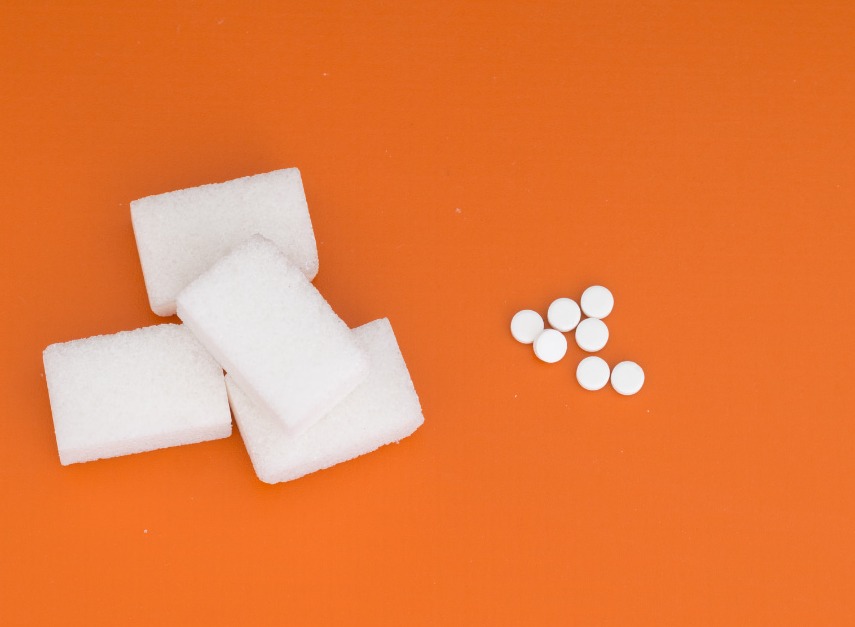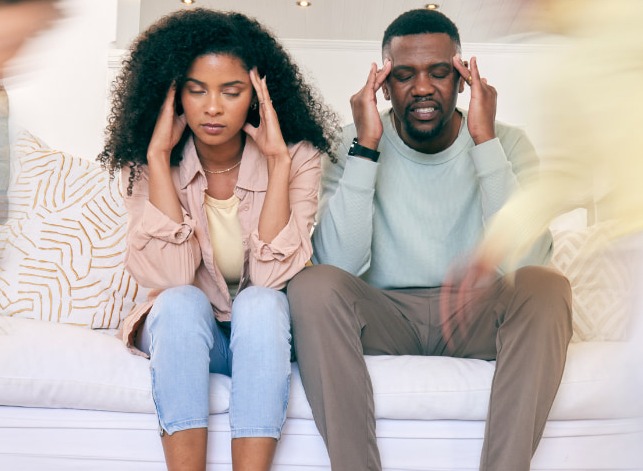- Home
- Share
- Forum
- General forums
- Good to know
- What do you do to sleep better? Let's share our tips!
What do you do to sleep better? Let's share our tips!
- 763 views
- 22 times supported
- 17 comments
All comments
Go to the last comment

robjmckinney
AmbassadorGood advisor
![]()
robjmckinney
Ambassador
Last activity on 20/04/2025 at 15:41
Joined in 2015
622 comments posted | 103 in the Good to know group
56 of their responses were helpful to members
Rewards
-
Good Advisor
-
Contributor
-
Messenger
-
Committed
-
Explorer
-
Evaluator
I have to report sleep is not an issue for me, yes a few aches and pains that may be distracting but in general no problems. My wife does have various issues, restless leg, arthritis etc., plus of course her CPAC, yes she also has the odd night but mostly okay. Getting her out of bed is the issue, she would stay in bed all if it was her choice. I will say if she wants to have a nap or anything she has to use her CPAC to sleep so quite restricted!
See the signature
robjmckinney

Suspended account
Try not to go to bed hungry or stuffed. Specifically, stay away from hefty or enormous suppers several hours of sleep time. Your distress may keep you up. Nicotine, caffeine and liquor merit alert, as well. The animating impacts of nicotine and caffeine require hours to wear off and can unleash devastation on quality rest. Furthermore, despite the fact that liquor may cause you to feel languid, it can disturb rest later in the evening. but if you often have trouble sleeping [link removed by moderator for violation of community standards] but please contact your doctor before taking pills

Tigger.co.uk
Good advisor
![]()
Tigger.co.uk
Last activity on 20/04/2025 at 15:47
Joined in 2016
767 comments posted | 100 in the Good to know group
46 of their responses were helpful to members
Rewards
-
Good Advisor
-
Contributor
-
Messenger
-
Committed
-
Explorer
-
Evaluator
I suffer with tinnitus and I find it very hard to sleep my anxiety and my pains dont help but recently my gp has subscribed a prescription to help with my tinitus I take 1 three times a day so I can get some sleep i find it is helping a bit i do manage to get a few hrs sleep but the pain doesnt help much ,yesterday i went to hospital and had another hearing test my hearing has got worse and i have been given new hearing aids they are digital much smaller and more comfortable but i have still got to have regular checks as i have hac one operation i had to have a Mastoidectomy my infection caused such a problem that they operated on my mastoid bone they had to cut the infection out so it didnt go into my brain but I am deaf in both ears and my right ear has a perferated ear drum but that's why they have to keep a check on me Tigger
See the signature
D M A

mrchipps
AmbassadorGood advisor
mrchipps
Ambassador
Last activity on 27/03/2025 at 21:05
Joined in 2015
355 comments posted | 37 in the Good to know group
37 of their responses were helpful to members
Rewards
-
Good Advisor
-
Contributor
-
Messenger
-
Committed
-
Explorer
-
Evaluator
Salsal.i have been doing yoga for over 12 years and it helps me sleep. It also helps to relax my mind , muscles and strengthen my bones. I agree find a good yoga teacher. As they will stop you from injuring yourself
See the signature
singing poet man

Courtney_J
Community managerGood advisor
![]()
Courtney_J
Community manager
Last activity on 13/10/2022 at 16:47
Joined in 2020
1,280 comments posted | 88 in the Good to know group
10 of their responses were helpful to members
Rewards
-
Good Advisor
-
Contributor
-
Messenger
-
Committed
-
Explorer
-
Evaluator
Hello all,69
I've come across this older discussion, and thought I would revive it, in view of the article that we have recently published on the negative effects of lack of sleep: https://member.carenity.co.uk/magazine/advice/what-are-the-health-risks-of-lack-of-sleep-1854
So feel free to join in, share your point of view and your tips for a better sleep!
@Pippadog @Debbiej7 @Pepper @DavidinaWyper @Jules69 @Paula11 @nanvanham @Lisatommo32 @NannieAnn @Jamesy7 @Bea1963 @phillpott @Bigj1969 @Avrilb @Laineywj11 @JaneHewitt @Sanger @Helen0604 @ActorSean @wright @wednesday @Emmamck68 @david john @RhianonT @Sickofpain @annturner @Jscotty78
Thank you!
Courtney
See the signature
Courtney_J, Community Manager, Carenity UK

NannieAnn
Good advisor
![]()
NannieAnn
Last activity on 20/04/2025 at 17:24
Joined in 2020
77 comments posted | 5 in the Good to know group
6 of their responses were helpful to members
Rewards
-
Good Advisor
-
Contributor
-
Committed
-
Explorer
-
Evaluator
-
Friend
I try to keep to a routine but when depression sets in I don't want to get out of bed at all. Its hard very work but I do try.
Give your opinion
Survey
Articles to discover...
Subscribe
You wish to be notified of new comments
Your subscription has been taken into account








Margarita_k
Community managerGood advisor
Margarita_k
Community manager
Last activity on 07/10/2020 at 11:39
Joined in 2016
1,195 comments posted | 118 in the Good to know group
1 of their responses was helpful to members
Rewards
Good Advisor
Contributor
Messenger
Committed
Explorer
Evaluator
Sleeping well is essential for our daily well-being. Inadequate or poor quality sleep affects our mood and lowers our energy level even if we are perfectly healthy. For people suffering with chronic conditions avoiding insomnia can be more difficult because of pain and other symptoms that can aggravate at night. That's why it is so important to follow some rules which will allow you to prepare yourself for the night and sleep better. Good news - it's not as hard as it may seem
1. Set a schedule.
That means going to sleep and waking up at the same time every day (yes, even weekends!). Try to avoid spending more time in bed than you need. Maintaining good light hygiene will help: Open the blinds or go outside as soon as you wake to get energized, and shut off all the lights (including electronics) when you go to sleep.
2. Eat well to sleep well.
The key to beating insomnia isn’t just in the bedroom—it’s also in your kitchen. Eat balanced meals throughout the day, and make breakfast your biggest. Digesting food requires energy, so if you eat a heavy meal late at night, your body will be hard at work digesting when it should be sleeping. Steer clear of greasy or fatty foods before bed as well, as they cause reflux which can wake you up during the night, says Sandra Fryhofer, MD, from the Council on Science and Public Health.
3. Cut the caffeine and alcohol
Caffeine can stay in your system for up to 7 hours, so if you have trouble sleeping, don’t drink it past noon. It can also increase nighttime urination.
Alcohol isn’t the answer, either. About 10-15% of chronic insomnia cases result from substance abuse, especially alcohol, according to the University of Maryland Medical Center. Excess alcohol tends to fragment sleep and cause you to wake every few hours, so limit yourself to one or two drinks with dinner.
4. Say yes to yoga.
Gentle yoga before sleep will put your mind and body to rest. You can even do these easy poses in bed:
- Short meditation: Sit cross-legged on your bed and lean back slightly onto your pillows. Rest your hands on your thighs, close your eyes and just breathe for a few minutes.
- Cross-legged bend: Still in this position, bend forward from your hips and stretch your arms out in front of you on the bed. Stay here for a few minutes.
- Reclining twist: Lie flat on your bed. Hug your right knee into your chest, then twist your leg across your body to the left while turning your head to the right. Lower your leg, and then do the same with your left leg.
5. Put down the iPad.
Cell phones, laptops, iPads, TVs—they all need to be switched off if you expect to get a good night’s sleep. All the way off. Light emitting devices stimulate and engage the mind, which is the opposite of what you want to be doing right before bed.
6. Embrace exercise.
Some say that exercising in the evening makes elusive sleep harder to find, but it really depends on the person. Find the time of day that exercise makes your body most happy, and stick with it. One study showed that having a regular exercise schedule helped insomniacs feel less depressed and more energized throughout the day.
7. Stay cool.
When your body temperature drops, you start to produce more melatonin, so keep your bedroom temperature between 65° and 75°F. Taking a hot shower or bath right before bed helps too, since the quick drop of temperature after you get out makes you feel sleepy.
8. Stop smoking
If you need another reason to quit, here’s one: Nicotine is a natural stimulant, so it keeps you from falling asleep. Even worse, withdrawal pangs may keep you awake at night. Studies show that smokers are four times more likely to feel not as well rested after a night's sleep than nonsmokers.
9. Use the bed only for sleeping.
Avoid use of the bed for watching TV, eating, working, or any other activities. If you do wish to use the bed for a bit of nighttime reading, read only pleasure books in bed.
Therapists often use "reconditioning" as part of a treatment plan for insomnia. With this method, people are "reconditioned" to associate the bed with sleep. If you find yourself unable to sleep at all, get out of bed and move to another room, so that you only associate the bed with sleep and not with wakefulness.
10. Create a restful sleeping environment
Your bedroom should be a peaceful place for rest and sleep. Temperature, lighting and noise should be controlled so that your bedroom environment helps you to fall (and stay) asleep.
If you have a pet that sleeps in the room with you, consider moving it somewhere else if it often disturbs you in the night.
Sources: forbes.com, medicinenet.com, prevention.com, nhs.uk
____________________________
How about you?
Do you experience problems sleeping? Which of these tips do you find most useful for you?
Do you have other ideas on how to sleep better?